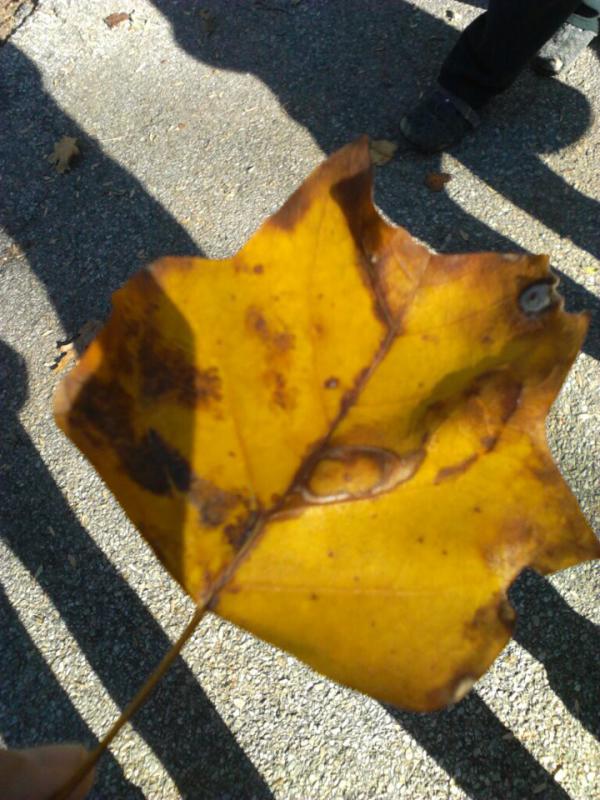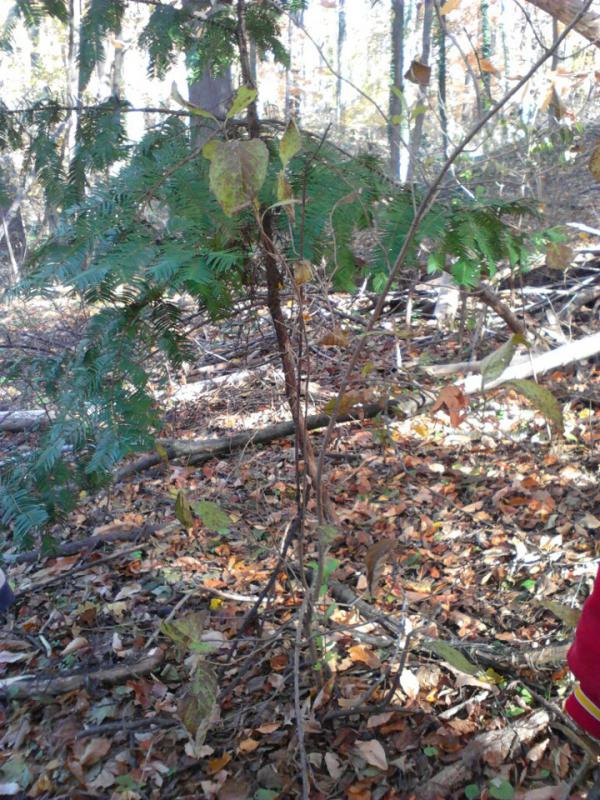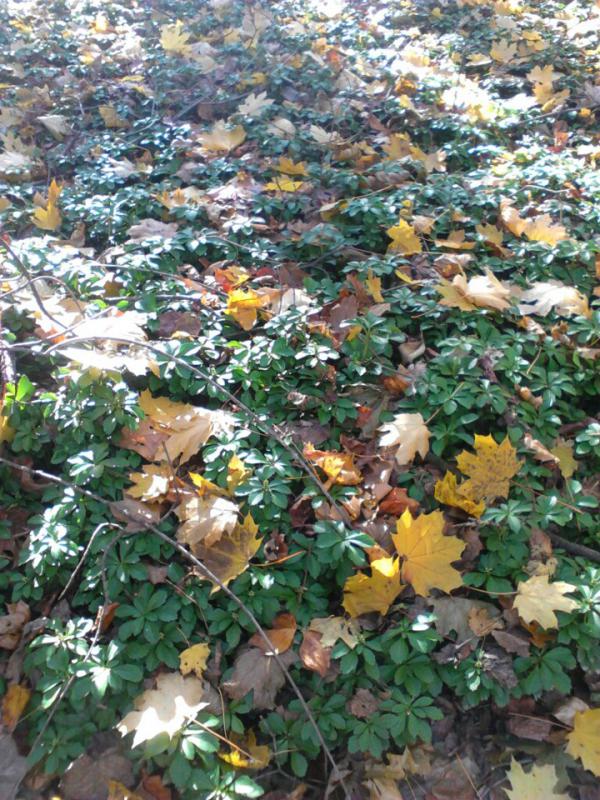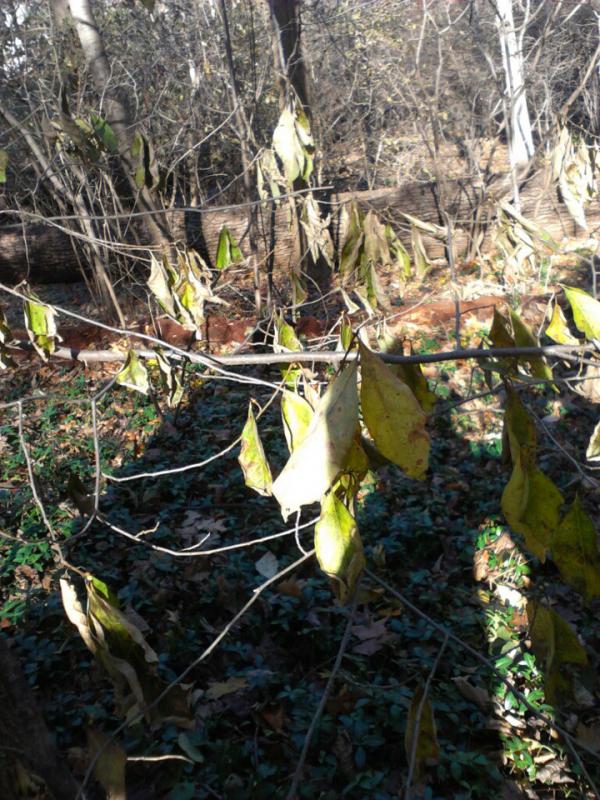Serendip is an independent site partnering with faculty at multiple colleges and universities around the world. Happy exploring!
EcoLit ESem

POST YOUR THOUGHTS HERE
Welcome to the on-line conversation for Ecological Imaginings, an Emily Balch Seminar offered in Fall 2012 @ Bryn Mawr College, in which we are re-thinking the evolving nature of representation, with a focus on language as a link between natural and cultural ecosystems.
This is an interestingly different kind of place for writing, and may take some getting used to. The first thing to keep in mind is that it's not a site for "formal writing" or "finished thoughts." It's a place for thoughts-in-progress, for what you're thinking (whether you know it or not) on your way to what you think next. Imagine that you're just talking to some people you've met. This is a "conversation" place, a place to find out what you're thinking yourself, and what other people are thinking. The idea here is that your "thoughts in progress" can help others with their thinking, and theirs can help you with yours.
Who are you writing for? Primarily for yourself, and for others in our course. But also for the world. This is a "public" forum, so people anywhere on the web might look in. You're writing for yourself, for others in the class, AND for others you might or might not know. So, your thoughts in progress can contribute to the thoughts in progress of LOTS of people. The web is giving increasing reality to the idea that there can actually evolve a world community, and you're part of helping to bring that about. We're glad to have you along, and hope you come to both enjoy and value our shared explorations. Feel free to comment on any post below, or to POST YOUR THOUGHTS HERE.

sharing knowledge
So much has already been written on our joint ramble with the seniors that I don't have much to add. Yes, it was it was interesting to remember more about our geology session: when it came time to share it with others cerain things resurfaced that I hadn't thought about since the day. Like relating the history of Bryn Mawr College not only to the stones it's built from, and where they came from, but also to the exrtaordianry Bryn Mawr woman geologist who named them! My other favorite moment was the vine-swinging. Three seniors in a row became inspired to emulate Tarzan: the first quite cautiously, then when nothing bad happened the second and third more boldly, ending with a real swing that caused the vine to let go and slowly come snaking down! On the way to the graveyard we saw a huge chunk of (I think) tulip tree sticking into the ground, probably blown off in the hurricane? And I loved the overgrownm alive but also a bit otherwordly atmosphere of the graveyard itself.
I have to rant again just a little bit about all the talk of "invasive" species. Firstly, as I like to say, humans have a lot of damn gall calling other species invasive! And the implication of moral depravity in plants which "take over" and "destroy" other plant species seems weird to me. They're just trying to make a living like anyone else. Do we condemn them for being successful?

A Few Thoughts
I already posted about the botanical tour a couple of weeks ago, but I thought I'd do another post reflecting on how I've been able to use what I've learned through out the semester. Given the fast, and often overwhelming, pace of the first semester of freshman year, I was concerned that I wasn't truly absorbing information. Often times, I felt as if I was robotically taking in information, for the sole purpose of "getting by"--if we want to connect this back to Meerker's comic mode. However, the other day I found myself in a rather refreshing conversation with somebody who didn't necessarily agree with my opinions regarding ecology (in its broad sense that accompanies ecofeminism, environmentalism, and even economics) and was able to not only able to give a strong argument for my case--which was about imputing value to women's unpaid domestic labor--but was able to convince them to somewhat agree with my standpoint. While I'd like to think that it was my skills of persuasion that convinced them to my side, I happily recognize that it's what I learned in this writing seminar that helped me shape, develop, and present a clear argument on this topic. The interaction gave me affirmation that what we've been doing here really has been sinking in, and that my education hasn't been reduced to a simple absorption of information; I've been acquiring knowledge.
Reflections about the Botanical Tour
The botanical tour that the people in the other class lead us on was very interesting. I liked learning about the plants in Morris Woods while actually being able to see them and touch them. One of the things that our tour guides had us do was to smell the leaves of two similar looking plants. Smell is not a sense I would usually think to use when comparing plants but these plants had two clearly different smells so this ended up being the easiest way to tell them apart. This made me wonder what else I was missing by using mostly only my sight to interact with plants. In William’s book she talks about loving the land, but you cannot be intimate with the land if you are only using one of your senses to interact with it. I really liked that we used multiple senses to interact with the plants we were being shown during the tour.

Ecological Imaginings and its ESEM
On the morning of November 18, Susan, Elizabeth, Max, Sarah and I set out boldly to teach each other a little bit about the botany and geology of the campus...
Well... Maybe it was more of a saunter...
Either way, it was a very enjoyable, as well as informative walk. We started out in front of Erdman, began walking towards Taylor, but decided to detour back to Max's site sit outside of Erdman instead. There we talked about the invasive English ivy, and other invase plants. We defined weeds as something that doesn't belong and won't leave. We then spent some time comparing our two classes. We talked a little bit about the writing expectations and the reading we had been doing. Since we were all in the ecofeminism unit at the time we discussed how feelings played into class discussions, and how nice it was to have feelings validated as positive contributions to the discussion, rather than brushed aside as inconsequential.
After that we (Susan, Elizabeth, and myself) led Sarah and Max to Taylor to identify the one of the two main types of rocks that the majority of Bryn Mawr's buildings are made out of. We used the handouts provided by Maria Louisa Crawford to identify the types of rock Bryn Mawr was situated upon. We discussed what happened to the old quarries after the rock had been removed; some turn into lakes, some turn into dumps.

The Wide World Is So Much Smaller Than I Thought
I went on a geological and biological tour of campus with Susan and Maddie from our class and Max and Sarah S from English 313. We spent about the recommended times on everything we were supposed to (a half an hour to get to know each other and then forty-five minutes for each tour), but we didn't split it up so exactly, we talked about things as they became relevant to the environment we were in, which I thought worked out pretty well. We had room to discuss what we needed to and inform each other, but we were also able to have more of a conversation, and bring things back up if we had forgotten to say them earlier, or wanted to expand on them a little more.

Miscommunication
We all (freshwomen and senior ecological imaginers) agreed unanimously that we wanted to get the biological tours of BMC campus done before Thanksgiving Break due to the amount of work we had to do after the Break. One thing we could not agree on, however, was the exact time. Numerous e-mails were exchanged back and forth, but no agreement could be reached. Thus a Doodle doc was born. We all put down the times we could meet, but not a single time frame seemed to work for every one of us. While this was happening, it was somehow decided to meet on a Saturday from 10:30 to 12:30, and in the e-mail talking about it it was mentioned (can't recall by whom) that the time would work for me too, since I was free from 11. I e-mailed everybody back, telling them they got the wrong idea: I was free from 1, not 11. But that seemed to go unheard and the decision was made to go on our biological tours then, and when I saw the e-mails discussing that it was ttoo late. All logistics aside, I am really sorry we didn't manage to go on the tours - it would have been lovely to find out more about the botany of the BMC campus. However, I do feel that my voice and opinion were not heard at all in this project; Zoe and I tried to reschedule the tours but we got negative response, and the agreement about the initial meeting completely disregarded me and what I had to say. I don't know why this happened, but one thing I know for sure is that I don't like not having my voice heard and feeling invisible.
The leaning tree and vine swinging
The botanical and geological exploration of Bryn Mawr campus I experienced with three “Sarahs”, Wanhong and Emily was quite interesting.
We started with a group of 5, Emily Tong, Sarah Macholdt, Sarah Cummingham and Wanghong Zou. We talked about our experience of our two different Ecological Imaging classes so far. We went on the geological exploration first. We identifyied the rocks, went to the Mills creek… Fast forward, fast forward. And we met three other ecological imaginers basking in the sun in front of the English house, which was when the trip got more interesting.
The eight of us first argued about whether the leaning beech tree in front of the English house would fell down at any point. One of us tried to push the tree down, but didn’t succeed, of course. Finally, we looked up high in the sky and found out the top of the tree was more branches on the opposite side of the direction the tree was leaning to. So the tree was in fact in perfect balance! I wonder if the tree had known about the laws of physics that it decided to grown in such special “gesture”.
Then our interest shifted to the vines that were grown on the beech tree. One of us did “vine swinging”!! A dangerous thing to do, I must say. The vine broke, and fell down an inch beside her! Sarah Cummingham said the tree was expressing its anger. I say we don’t have the skills of Tashan to do vine swinging. We had overestimated the strength of the vine. Eventually Sarah decided to take the broken vine home and make an art creation out of it. (Have you finished it, Sarah?)
Learning about nature by touching it
Minh, Barbara and I visited with two upperclassmen, Sruthi and Hira on an ecological tour of the campus.. This is my account
Extending discussions about "Ecology without Nature" in class
In class we discussed "Ecology without Nature"(12-13+a paragraph on top of P14), and these are some answers from Barbara and I. Barbara and I shared opinions with each other in class and came up with these ideas:
1. What is truely theoretical approach?
According to the reading material we think it means thinking slowly, carefully in a aesthetic, appreciative way and question the original idea instead of putting it into action immediately.
It actually reminds me of an old Chinese saying: "thinking thrice before proceding".
2. What is "deconstruction" in ecological thinking?
To be honest, at first I thought it was "destruction"...then I looked at it again and realized that it meant something different! From the context, Morton's idea was "thoroughly examines how nature is set up as a transcendental, unified, independent category". I think this means the opposite of thinking the ecosystem as interconnected. In fact, "deconstruction" was also a type of medical teaching, meaning to learn human body system by parts, rather than viewing as a whole.
The fog
It was a foggy Sunday morning. The fog actually began to envelop the campus since last night, I realized it as I was walking back from Park to my dorm. Fog wrapped everything with a coat of mysterious white. All that have been familiar to me on this campus suddenly became unfamiliar. Everything adopted an air of mystery. I could not see really far. Things only became familiar when I got closer to it. Walking along the road, any approaching tree seemed to be gradually revealing itself from behind a curtain, secretly and mysteriously, and ambiguously disappeared again as I walked pass it.
In the dark and foggy night, reality and unreality mixed. These two concepts are often approached in arts and literature as some kind of beauty that stimulates curiosity and admiration. But in nature, or in life, the unclear and mysterious seemed more frightening, at least to me... Or perhaps, there is no such thing as unreality, just my own fear of the unknown reality. Perhaps, unreality is just a presentation of possibilities, or even magic. Who knows what might emerge from our unpredictable nature ~
The Fog by William Henry Davies
"Stray Birds"--Warm, beautiful poems
I have been wondering why we haven't encountered much poetry in class. Rabindranath Tagore is my favourite poet, and he wrote beautiful words such as "We live in this world when we love it"
(For more about short poems in Stray Birds: <http://www.poetseers.org/nobel-prize-for-literature/tagore/stray/>.)
I encountered a small book called "Stray Birds" when I was in junior middle school. One of the main reasons that I like many his poems is that he merged emotions into nature and vice versa in such a smooth way that there were no such conflicts, arguments, but plain feeling of peace and being surrounded by love. His words are immortal, because he talks about the eternal universe. When he looked at something and described it, he did so with such appreciation, and respect.
His attitude to readers was also different from that of any authors of our in-class material(--I am not "complaining" because we do need to do lots of work on academic writing)--He was teaching you something, but not with the strong feeling of having to tell the reader "listen to me, I am right! I am the authority!",or with a list of scientific facts--he simply told short stories in his poems, but making readers feel that your imagination has just began to float when the story ended. His gentle, warm words about nature could for many times release me somehow for tense academic readings.
What Future Do You Want?
After I missed the group botanical and geogical tour, I started to question what was important to me. All the different things that were going through my head at once was overwhelming so I only focused on what was at the forefront of my mind happening right then and there. I forgot to email to let my group members know I wouldnt be able to make it. And that was 100 percent my fault. However, it makes me wonder whether or not we need to focus on the present or prepare and remember for the future. If we never made plans would things in life still get done. In the Bible we are supposed to leave our lives up to God and be able to completely surrender to him and not worry about the past or future only the present. Can we do that with nature? What about the reprocussions of the future? Would we have an enviroment to go back to if we keep destroying it as we do now? It seems to me that living in the moment and not thinking about our actions and consequences would be a negative affect on ourselves as well as on the environment and others.
Biological Tour!
Our biological tour was amazing, not only because of the plant species we were shown but also because I found many interesting "natural crafts" around the campus.
So, what are these plants?

This is the leaf of a yew. It is, surprisingly, slightly toxic, but its toxicity could help treat cancer if used properly.It is more dominate here than many native species and thrives at central east part of the country. Some Tulip Trees grow well around Yews.

Verbinum is the theoretically invasive plant here! Its leaves has a smell of green pepper even when they are fading in color.

The green, ignorable plants under our feet are called Pokey Sundra. There are so many of them!

The lovely Spicy Bush has a lemon smell, and they looks as yellow as lemon as well. We found some of them right next to Verbinum.
There were so many plants inside and around the campus, and it is exciting for us to learn their names!
Muddy Connections
The Sunday before Thanksgiving break, I found myself thinking about mud.
On our geological biological tour, we did not exactly follow the directions to the letter. The instructions were to spend time talking about the class, then proceed with either the geological or biological tour, and after that one was finished, go on to the next part. Our group started by talking about the class, which was interesting. It was like seeing a parallel universe Ecological Imaginings. Small things like the places we have class and the majors within the groups are different, but we are really getting the same things out of the class, a better understanding of our ecology.
After that portion of our time together, we decided to walk across campus (from Erdman where we started to Mill Creek) and whenever we saw something that was incorporated into our respective tours, stop and talk about it. I liked this. In a way it was very ecological. We didn't separate geology and botany into distinct group, but addressed them as they came in the natural flow of our sauntering.
Cezanne on Nature
"When I judge art, I take my painting and put it next to a God made object like a tree or flower. If it clashes, it is not art." - Paul Cezanne
I thought this was an interesting quote by Cezanne on nature that came up in Art History the other day. Putting this in context, many artists, when painting landscape, would copy elements from paintings in the Louvre and put it into their work. Cezanne thought that to create art you have to look at the original object. I wonder if Cezanne would disapprove of Morton?

Spirit: maybe the answer we are looking for!
One word which has been mentioned rather rarely, in our readings, in our discussions, in our postings, is spirit, or spirituality. Once I notice this lack, it becomes glaring, conspicuous in its absence, since in many instances it gives the answer, the resolution to our dilemmas, the center which would hold together our ethics and our analysis. If we start to notice, as native people's do, that everything has a spirit, its right to its exist becomes clear. Our patriarchal, human-dominated, nature-dominating, exploitive civilization is partly based on, or justified by, the notion that only humans have a soul. Even science has carried on this view, assuming that since we have larger brains and a certain kind of self-reflective consciousness, that therefore we are in a different category completely from any other creature. Of course this view is even scientifically breaking down, as we find out about communication and creativity in creatures like dolphins, chimpanzees, elephants--and fruit flies! But there is still an assumption that we count more, because we are able to think in this way that has allowed us to develop our technology. It goes on reinforcing the view that we have rights over everything else.
The Most Dangerous Game
Whole Story: http://fiction.eserver.org/short/the_most_dangerous_game.html
Video(on youtube):http://www.youtube.com/watch?v=Nhhc0whITrU
Maybe you have picked flowers, hunter rabbits, or larger beasts, but have you ever hunter another HUMAN?
"The Most Dangerous Game" is a story that I read in high school, but now when I read it again, I have more ideas emerging in my mind. This story also explain my idea of what "the unspoken hunger" is--the desire for vitality, for being physically strong, being the controller of a game--of life. This hunger, or desire, of a challenging hunting for life hides under the General's cultivated appearance, but it had never faded.
Fundamental Difference between Taoism and Buddhism
I want to emphasize a very important difference between Taoism and Buddhism, the two very big philosophical system in Eastern world, as in a previous reading both are used as examples of advocating the idea of being nice to nature.
Both Taoism and Buddhism have the idea of "following the rhythm of nature", but their goal are completely different.
In taoism, people follow the rhythm of the nature, be peaceful in mind, make "magical medical spherical pills" to prolong life--in other words, to try one's best avoid death, but in Buddhism, death is actually the start of a new, wiser life, and should be accepted peacefully. So, although both system tells one to be nice to nature and peace in mind, Buddhism provided a more altruistic idea while Taoism care relatively more about one's own well being. Taoism has borrowed many ideas from Buddhism but for a different goal.
Why ethical? How ethical?
“We can be ethical only in relation to something we can see, feel, understand, love, or otherwise have faith in.”--Aldo Leopold
I support this idea because I think we, as human beings, are born to think in a relatively anthropocentric way, which means we usually care about something starting from caring about ourselves. This is instinctive because our feelings originated from every neuro, every impulse in our body and mind are those that affect our decisions at the first place. At the very beginning of human species, trees are cut to make shelters, and animals are consumed to provide energy for survival. That is--we started consuming "resources" for our basic needs, not wants. Then we desire more, and consume more--to satisfy our wants, our psychological need--possibly the feeling of being admired. As a result, people around the world would worship land, water, trees, flowers, etc.
Is this idea wrong? I don't think so--it actually means that we are ethical to everything we know, because everything in this world is related to us in someway. If we don't know or understand something, we would, of course, know how it could affect us, and therefore would not even notice it. If we cannot notice it, we are not in relation to it, how could we feel ethical in relation to it?



